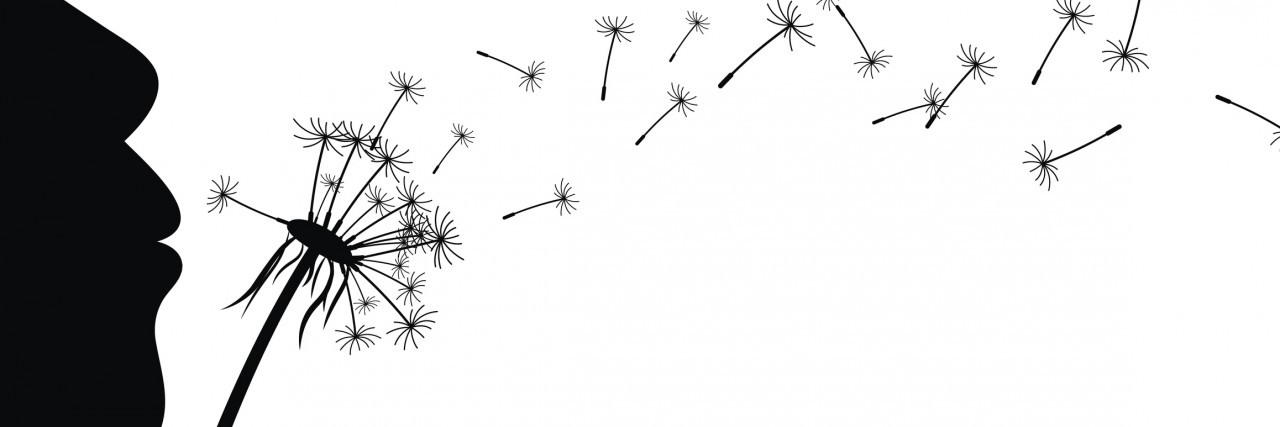I love inspirational quotes. I keep my Facebook feed full of these little tidbits of wisdom. Some of them I agree with, others I don’t. I can usually just move on when I disagree with one, but “happiness is a choice” has never sat well with me, and it’s one I can’t let go of.
Here’s why I don’t think happiness is a choice and what I choose to say instead.
1. Mental illness is not a choice.
I didn’t choose anxiety or depression; they chose me. That means I don’t always have control over my thoughts or emotions, even when I know they’re irrational. To suggest I can simply “choose” not to have a panic attack or depressive episode is absurd, and saying so in the midst of one will make me feel even worse. I was once told, “You can choose to be suicidal, or choose to get help.” My desired response to this could be a post in and of itself. Long rant short, it’s nowhere near that simple, and please never say that.
2. It’s stigmatizing.
I have an illness in my brain that affects my emotions. Would you tell someone with an illness in a different part of their body, “Illness is a choice, just choose not to be sick?” But if I’m anxious or depressed, it’s my fault, I’m throwing a pity party, or I’m not trying hard enough to get better. I’m experiencing symptoms, not making a choice to torture myself. I can do everything right to manage mental illness and still struggle.
3. It’s OK to be unhappy.
When did we decide everyone had to be happy all the time? Part of the reason I think happiness has been turned into a choice is that it doesn’t always come naturally, and that’s perfectly fine. Our other emotions aren’t bad; they’re an uncomfortable part of being human. I have a right to feel and express something other than happiness without being judged, blamed, invalidated, or told I’m playing a victim.
4. The phrase is often qualified.
I’ve lost count of the number of times I’ve heard people say “happiness is a choice” and then follow it up with a statement that clarifies what it doesn’t mean. That it “obviously doesn’t apply to mental illness” or “It’s still your choice because the opposite of depression is health, not happiness.” If you have to qualify a statement that’s meant to stand alone, there’s probably a clearer way to say what you mean.
5. It minimizes painful processes.
Whether it’s acceptance, grief, or change, I’ve found a lot of people who say it have gone through some kind of difficult or painful process. When we’re going through something like this, it’s normal to look to those who have been there. But when someone who has had years to work through something says on day one of your similar journey that “happiness is a choice,” it can come across as dismissive of your current feelings and the true difficulty of what you’re facing.
6. It’s stated as universal truth.
No matter what you’re talking about, you’ll often hear that “everyone is different” and “if you’ve met one person with (fill in the blank), then you’ve met one person.” If you’re going to acknowledge that no two people are the same, then you have to accept that different things work for different people. So, before you tell me to “just choose to be happy,” remember that not everyone finds this “choice” empowering, or even possible.
If you or someone you know needs help, visit our suicide prevention resources page.
If you need support right now, call the National Suicide Prevention Lifeline at 1-800-273-8255, the Trevor Project at 1-866-488-7386 or text “START” to 741-741.
We want to hear your story. Become a Mighty contributor here.
Thinkstock photo by Vjom

